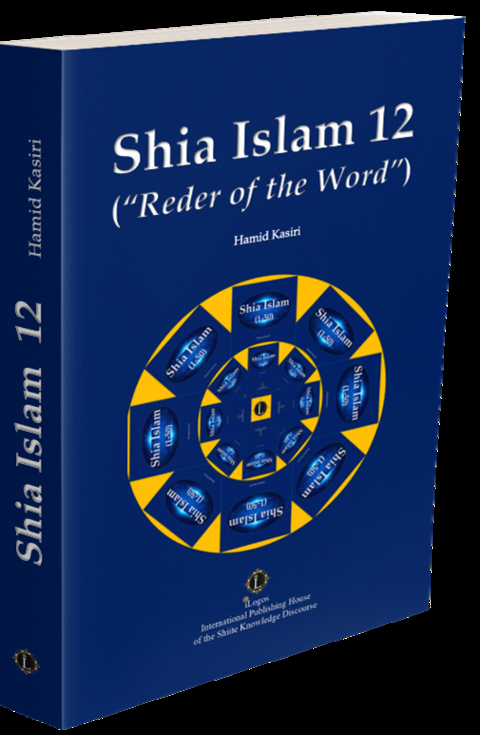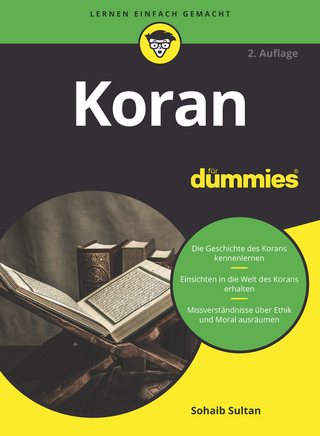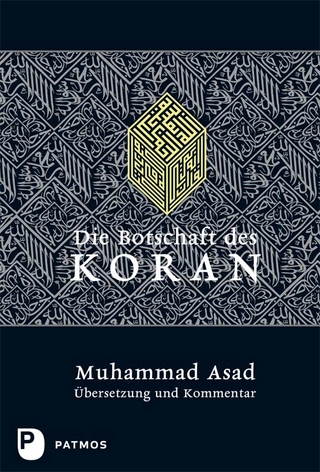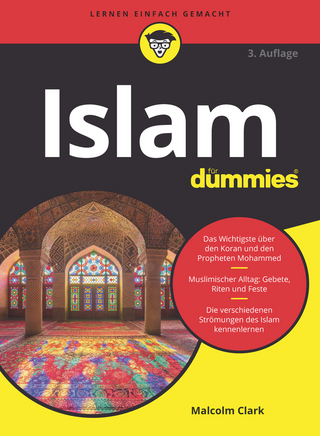
Shia Islam 12
iLogos HK e.U. (Verlag)
978-3-903299-74-0 (ISBN)
The theologian Karl Rahner says that listening and questioning are the expressions of being human. Only in listening does a person become a human being. Man listens to what corresponds to him. This opinion is only valid in Christian theology of revelation, but it is too little for Islamic theology of revelation:
In Islamic theology of revelation, it is mainly not listening and questioning that are the determinants of being human, but “reading”, perceiving, questioning and criticizing.
For Christianity, the Word is fundamental, as is the identity of message and messenger, Gospel and Jesus Christ (s).
But for Islam, the Word is fundamental, as is the Message, the Messengers, the Quran and the Prophet Muhammad (s).
In Christian word theology, man - as a listener to revelation - opens himself to the word because he himself is imperfect. He is therefore dependent on something that is outside of him.
In Islamic word theology, man - as a “reader of the word” - opens himself to the word that is in the Quran because he himself is imperfect.
In Christianity, one deals passively with the word, but in Islam actively. Here one is not only a listener, but also a “reader” in an active form. Here, one must empower oneself to read the Word, to understand its content and to put its teachings into practice in one’s life.
•Prof. Dr. Hamid Kasiri (Amin-ul-Islam Mazandarani) is a Muslim theologian of the Shia tradition and a renowned international scholar who, during his studies of Islamic and Christian theology and the Shia and Catholic doctrines - deals with transcultural, intercultural and interreligious dialogue and the theology of religion. Born 1964 in Mazandaran/Iran. 1970-1982 Primary and secondary school. 1982-1991 Basic study of philosophy and Islamic theology at the Islamic University in Qum. M. A. Studied clinical psychology at the University of Tehran. 1991-1997 Postgraduate studies of the highest-level jurisprudence and philosophy of jurisprudence, Quranic exegesis and Theognostik (Islamic mysticism). 1997-1999 Research Assistant for Religious Studies. 1997-2004 Doctoral program of Catholic Theology. 2009-2013: “Senior Postdoc” Habilitant at the University of Vienna. Project: “Non-Violence Hermeneutics”. In 2011 he was recognized for his academic qualities as a “scientific exceptional personality” in Austria. His was also appointed as the “Ambassador of Peace” (2010). His careers include several theories, book series and his monographs on Islamic sciences at universities are now considered as classics. He is the founder and owner of “ILogos International Publications” in Vienna/Austria.
| Erscheinungsdatum | 18.12.2023 |
|---|---|
| Reihe/Serie | Shia Islam ; 12 |
| Verlagsort | Austria |
| Sprache | englisch |
| Themenwelt | Geisteswissenschaften ► Religion / Theologie ► Islam |
| Schlagworte | Faith comes from "reading". "Reading" as a believing perception of the Word of God. "Reader of the Word" . Human dignity. Man as a "reader of the Word". Paradigm shift: From "listening" to "reading" . The "Schema Commandment" of the Holy Quran: "Read!" . • "Reading" as a meditative interaction. "Reading" as an interaction of faith. "Reading" as a behavioral interaction. "Reading" as a hermeneutic interaction. "Reading" as an interaction of salvation. "Reading" as an interaction of expectations. "Reading" as • The "reading" world community . The anthropological foundation of "reading" . "Reading" and experiencing existence. "Reading" and self-awareness. "Reading" and (violent) freedom. "Reading" and asking questions . "Reading" and language culture . "Reading" |
| ISBN-10 | 3-903299-74-X / 390329974X |
| ISBN-13 | 978-3-903299-74-0 / 9783903299740 |
| Zustand | Neuware |
| Informationen gemäß Produktsicherheitsverordnung (GPSR) | |
| Haben Sie eine Frage zum Produkt? |
aus dem Bereich


